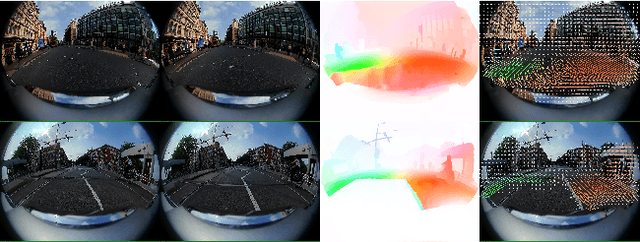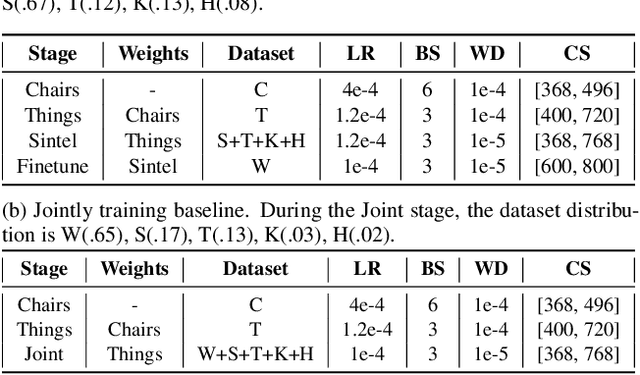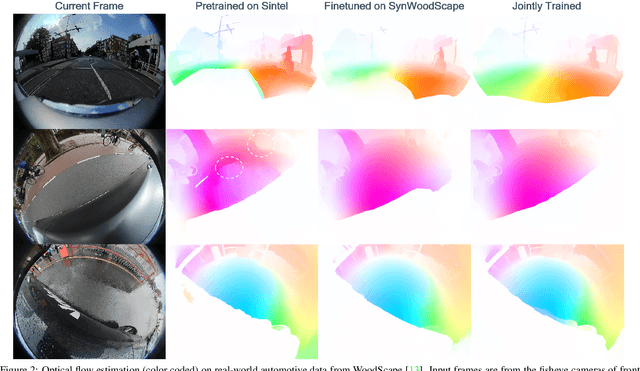Optical Flow for Autonomous Driving: Applications, Challenges and Improvements
Paper and Code
Jan 11, 2023



Optical flow estimation is a well-studied topic for automated driving applications. Many outstanding optical flow estimation methods have been proposed, but they become erroneous when tested in challenging scenarios that are commonly encountered. Despite the increasing use of fisheye cameras for near-field sensing in automated driving, there is very limited literature on optical flow estimation with strong lens distortion. Thus we propose and evaluate training strategies to improve a learning-based optical flow algorithm by leveraging the only existing fisheye dataset with optical flow ground truth. While trained with synthetic data, the model demonstrates strong capabilities to generalize to real world fisheye data. The other challenge neglected by existing state-of-the-art algorithms is low light. We propose a novel, generic semi-supervised framework that significantly boosts performances of existing methods in such conditions. To the best of our knowledge, this is the first approach that explicitly handles optical flow estimation in low light.
 Add to Chrome
Add to Chrome Add to Firefox
Add to Firefox Add to Edge
Add to Edge